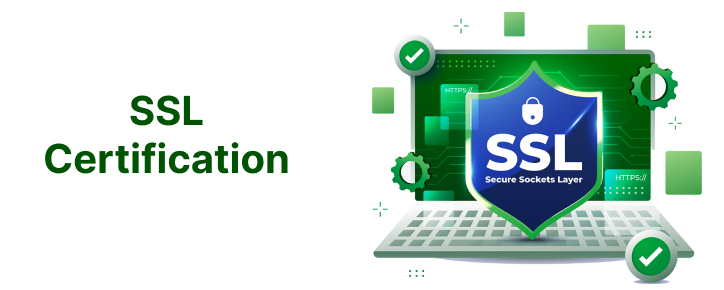
SSL Certification
SSL (Secure Sockets Layer) is a protocol used to encrypt data transmitted between a website and its users. SSL certification is a security technology that enables websites to provide a secure and encrypted connection between a web server and a web browser.
SSL certificates are issued by trusted third-party Certificate Authorities (CAs) and are used to verify the identity of a website and its owner. When a user visits a website that has an SSL certificate installed, their web browser will initiate an SSL handshake with the website's server, which will then establish a secure, encrypted connection.
SSL certification is important for several reasons. Firstly, it ensures that any data transmitted between the user's web browser and the website is encrypted and secure, preventing unauthorized access or interception. Secondly, it helps to verify the identity of the website and its owner, providing assurance to users that they are interacting with a legitimate website and not a phishing or scam site.
To obtain an SSL certificate, website owners can purchase one from a trusted third-party CA, who will verify the owner's identity and issue the certificate. Many web hosting providers also offer SSL certificates as part of their hosting plans, often with a simple one-click installation process.
It's important for websites to have an SSL certificate, particularly for those that handle sensitive user data such as passwords, credit card information, or personal information. Having an SSL certificate can also improve a website's search engine ranking, as search engines prioritize websites with secure connections.





